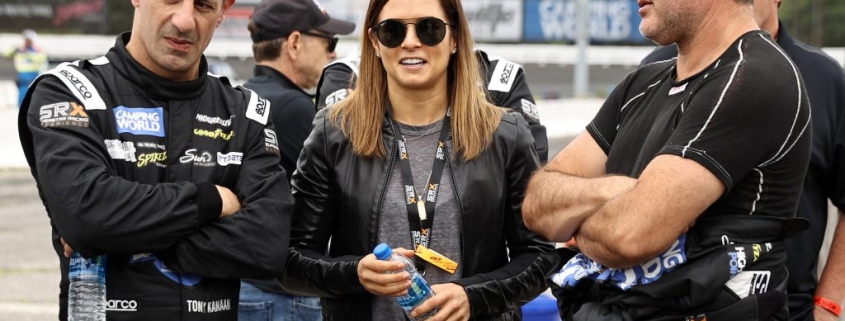Study Confirms That Women in Motorsports Face Rampant Discrimination and Sexism
The sport of racing has seen many famous winners and iconic cars, like the Volkswagen electric racer that broke world records. But motorsports has recently gained attention for the impact it has on women racecar drivers.
A recent study was published in the journal Psychology of Sport and Exercise. It discusses discrimination and sexism against women in racing. What are the study’s findings, and how can we fix the issues?
What the recent study on women in motorsports shows
This past January, a study came out regarding discrimination against women in racing. In a sport typically dominated by men, some women compete and sometimes win. However, it appears women aren’t always welcome on the track, Science Direct reports.
According to Jalopnik, some women have experienced sexist attitudes during their time participating in motorsports. Unfortunately, this is what seems to drive their lack of joining the sport. Even more interesting is that the discrimination and sexism extend to female fans and engineers, too.
The study’s researchers spoke with several women in motorsports about their individual experiences with discrimination and sexist attitudes. Then the researchers took that information and built a framework on which they could determine the impact on women in the sport. They also deduced ways to get more women interested in competing in motorsports.
What can we do to encourage more women to compete in racing?
The study recommended that we approach the way we view women in racing and other motorsports differently. Women exhibit their talents differently, and each experiences different challenges.
It’s also recommended we promote female participation in motorsports to move away from the men-vs.-women mentality. We need to encourage competition, but not the male superiority often seen in this sport.
The use of racing technology might also help. Nissan developed a brain research program that studies drivers’ skills based on age, gender, experience, and other factors. The automaker can then enhance its vehicles to accommodate the driver’s skill set. This could essentially encourage more women to participate in motorsport competitions.
A brief history of women racers
One of the first women to compete in Formula 1 was Maria Teresa de Filippis, an Italian driver in the 1950s, Top Gear reports. She had five Grand Prix races under her belt between 1958 and 1959. She later said that she experienced discrimination only once during her career — when a racing director at the French Grand Prix claimed that women should wear a helmet only at the hairdresser.
In the 1980s, one woman made waves as one of the best female racers ever. Michele Mouton won four rallies for Audi and finished as a runner-up in the 1982 world championship. A few years later, in 1986, she won the International Pikes Peak Hill Climb, where she set a record.
Danica Patrick is the only woman to win an IndyCar race, which she accomplished in 2008. She took the checkered flag that year in the Indy Japan 300 race. She continued to race in IndyCar and NASCAR until 2017, when she retired from her racing career.
To evolve racing, we could move away from being concerned about a racecar harming the environment (when most don’t) to leveling the playing field for more women to get involved in the sport. That’s because women can be as skilled at racing as men, as evidenced by past competitors who often took first place against men.
RELATED: On This Date: The First Woman to Drive a Jet-Powered Car
The post Study Confirms That Women in Motorsports Face Rampant Discrimination and Sexism appeared first on MotorBiscuit.







